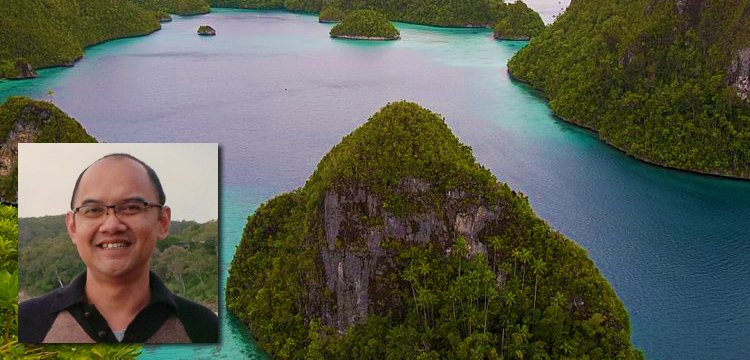Is the Pacific’s solidarity for Papua on the rise? by Dr Budi Hernawan, Lecturer at Paramadina Graduate School of Diplomacy and Research Fellow at Abdurahman Wahid Centre at University of Indonesia in Jakarta.
Recently during a public forum on the issue of Papua organised by the Indonesian government think-tank (LIPI) in January 2016, we were drawn to the attention of the Pacific countries towards Papua. While the representatives from the Indonesian government and intelligence treated the issue as marginal, a Golkar parliamentarian, Tantowi Yahya, took the Pacific issue very seriously. He argued that the Papuan movement managed to mobilise support from the Pacific diplomatic fora, particularly the Melanesian Spearhead Group (MSG), the Pacific Island Forum (PIF) and the Pacific Island Development Forum (PIDF), by exposing human rights abuses committed by the Indonesian security forces.
Yahya also outlined the power struggle between the Pacific countries where Fiji and Papua New Guinea play a double standard towards Indonesia. On the one hand, they continue to secure their own national interests but maintaining their alliance with Indonesia but on the other hand, they give a leeway for the Papuan representatives, the ULMWP, to operate freely in the region. Therefore, Yahya urged the government to act more decisively in combating the growing support for Papua in the Pacific. Yahya is not wrong.
In comparison to the active Pacific diplomacy on the issue of decolonisation of New Caledonia or French Polynesia, we heard very little of the engagement of the Pacific diplomacy with Papua for many years. It was only Vanuatu which consistently supported the Papuan political aspiration for self-determination and brought Papuan freedom fighters together. For instance, in July 1977 Vanuatu facilitated the reconciliation process between two leaders of Papuan freedom fighters: Jacob Prai and Seth Rumkorem under the so-called “Villa Declaration”. In 2008, Vanuatu played an instrumental role in supporting the establishment of the West Papua National Coalition for Liberation (WPNCL), an umbrella for the Papuan armed groups.
In the last three years, the role of Vanuatu in unifying Papuan political factions remains central. During the 19th MSG Summit in Port Villa, Vanuatu was the only member state, which fully supported the Papuans’ bid for the MSG membership. Despite Papua’s failure to secure the bid of the MSG membership, Vanuatu remained committed to unify Papuans. As a result in December 2014, it made a breakthrough when the three major Papuans signed an agreement in Salarana, Vanuatu, to establish a new umbrella organisation, namely the United Liberation Movement for West Papua (ULMWP). The three major organisations, including WPNCL, Federal Republic of West Papua (NFRPB), and the National Parliament of Papuan People, were committed to the Saralana Agreement to work together under Secretary General Octo Mote.
The persistence of Vanuatu permeates the Melanesian countries which then explicitly expressed their support to Papua’s self-determination. In the 19th MSG communiqué we will find phrases like ‘the inalienable rights of the people of West Papua towards self-determination’ and ‘human rights violations and other forms of atrocities relating to the West Papuan people’. These wordings were unprecedented given the long silence of the MSG over the case of Papua. During the 20th MSG summit the support for Papua was translated into the approval of the MSG leaders to grant observer status to ULMWP. The decision not only has given Papuans a formal status within the MSG, which was unthinkable before, but more importantly, has created a space for dialogue between Papuans and the Indonesian government. The latter constituted another breakthrough that the Pacific diplomacy achieved.
The Pacific diplomacy did not stop there. Through the PIF, the Pacific countries decided to send a fact-finding mission to Jakarta and Papua whereas the Chair of MSG extended its invitation to the government of Indonesia and ULWP to be a mediator of their dialogue early this year. The Indonesia’s response, however, is rather predictable. Just as France strongly opposed any international hand intervening French Polynesia, so too does Indonesia resist any international gesture towards Papua since it has been perceived as undermining Indonesia’s sovereignty. Instead, the Indonesian government continues its program to mobilise Indonesian Melanesian as an antithesis to ULMWP. The Indonesian government argues that there are five provinces in Indonesia that anthropologically belong to the Melanesian. So Papuans are not the only ones.
Perhaps Yahya is right in identifying the rise of the Pacific diplomacy on Papua. But he might miss the fact that the concerns of the Pacific countries over the issues of self-determination and decolonisation were already cemented by the establishment of the South Pacific Forum in 1971. Since then the Pacific countries have actively promoted self-determination and decolonisation as their core values. Although they maintain their diplomatic silence when it comes to the US territories, they have actively engaged with New Caledonia, Bougainville, and French Polynesia, long before Papua.
———————
© Dr Budi Hernawan


